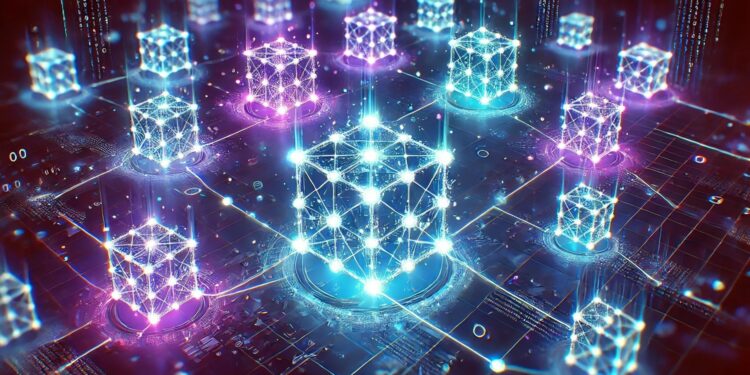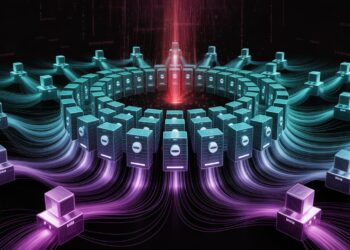Imagine a city. Buses, trains, and cars are always moving around. Each stop or station plays a vital role in this system. Think of each of these places as a “node.” Nodes are everywhere in technology too. They’re super important for how things connect!
A node is a basic point within a bigger system. This article will show you what nodes are. We’ll cover their function, types, and uses in different fields.
Understanding the Core Concept of a Node
A “node” is simply a key part of a larger structure. It’s like a building block. You can find nodes in networks, technology, and even in your brain! Think of it as a spot where things meet or connect.
What Defines a Node?
Nodes have some basic features. Each has its own ID. They can process info. Nodes also link to other nodes. These links help data flow through the system. A node has places for data to come in (inputs) and go out (outputs). Nodes are key players in any system.
Nodes vs. Networks: How They Relate
Nodes make up networks. One node by itself isn’t a network. They work together to let communication and action happen. Imagine a group of friends. Each friend is a node. The friendship between each person is a connection. That’s how networks work.
The Role of Nodes in Data Transmission
Nodes help data move around. They are like stops on a train line for info. They help route data packets, which is important. This means info gets to the right spot. Nodes make communication happen smoothly. They keep things flowing in a network.
Nodes in Computer Science and Networking
Nodes are all over the IT world. They do many different things. They keep systems running smoothly. Let’s examine some examples.
Network Nodes: Routers, Switches, and Servers
Routers direct traffic on the internet. Switches connect devices in a network. Servers give resources and services to computers. Each node has a job to do. All these parts are key for a network to work right. Routers, switches, and servers are vital.
Blockchain Nodes: Validation and Consensus
Blockchain nodes check and okay transactions. They keep the ledger safe and honest. Some nodes are “full nodes.” They keep a copy of the whole blockchain. Other nodes are “light nodes”. They only store part of the blockchain. They play a huge part in keeping blockchains secure.
The Importance of Node Infrastructure for Scalability
More nodes help a network grow. If a network is too small, it cannot do enough. Lots of nodes can handle traffic. This is what it means to “scale”. The right amount of nodes keeps things running fast.
Nodes in Distributed Systems
Distributed systems use many nodes. Nodes in these systems share the workload. This keeps things stable and speedy. They allow systems to handle huge amounts of work.
Nodes in Cloud Computing
Cloud computing uses virtual machines. These VMs are nodes. A VM can offer services and storage. You can use a container as a node, too. Cloud computing depends on these virtual nodes.
Sensor Nodes in IoT (Internet of Things)
IoT devices use sensor nodes. These nodes collect data from the world. They send it to a main system. Your smart home uses sensor nodes. So do environmental monitors.
Applications of Nodes Beyond Technology
Nodes are not only in tech. The idea of a node is useful in different fields. It shows how things connect in complex ways. Let’s explore some other examples.
Nodes in Social Networks
People can be nodes in social networks. They connect through friends and other links. Groups of people can be nodes as well. How people interact matters. A like, a share, or a comment links nodes in the network.
Nodes in Biological Systems
Your brain has neurons. Each neuron is like a node. Cells in the body can be nodes too. These nodes send signals. They make your body work. Biology uses nodes to help explain many things.
Troubleshooting Common Node-Related Issues
Nodes can have problems. Here are some tips for fixing node problems. Use them to keep your systems running well.
Diagnosing Node Connectivity Problems
Can’t connect to a node? First, check the cables. Is the IP address correct? Check your firewall settings too. Simple steps can fix the issues.
Addressing Node Performance Bottlenecks
Nodes slowing down? Maybe it needs more power. Or it could be a memory problem. Network issues could be a cause, too. Finding the issue helps get performance back.
The Future of Nodes and Networking
Nodes keep changing. New tech changes how nodes work. Here are some ideas about the future.
Edge Computing and the Expanding Role of Nodes
Edge computing puts power closer to data. This makes nodes even more vital. Nodes are needed at the edge of the network. It helps speed up processing.
Quantum Computing and Node Architecture
Quantum computers might change nodes. They could change networks too. This is still new. It might create amazing changes in the future.
Conclusion
Nodes are key to systems. They are vital in networks, blockchains, and social connections. Knowing about nodes is crucial for anyone in tech. They keep growing and changing. Nodes will help make the future of connected systems.

























